Year 6
The English curriculum is built around the three interrelated strands of language, literature and literacy. Teaching and learning programs should balance and integrate all three strands. Together, the strands focus on developing students' knowledge, understanding and skills in listening, reading, viewing, speaking, writing and creating. Learning in English builds on concepts, skills and processes developed in earlier years, and teachers will revisit and strengthen these as needed.
In Years 5 and 6, students communicate with peers and teachers from other classes and schools, community members, and individuals and groups, in a range of face-to-face and online/virtual environments.
Students engage with a variety of texts for enjoyment. They listen to, read, view, interpret and evaluate spoken, written and multimodal texts in which the primary purpose is aesthetic, as well as texts designed to inform and persuade. These include various types of media texts including newspapers, film and digital texts, junior and early adolescent novels, poetry, non-fiction and dramatic performances. Students develop their understanding of how texts, including media texts, are influenced by context, purpose and audience.
The range of literary texts for Foundation to Year 10 comprises Australian literature, including the oral narrative traditions of Aboriginal and Torres Strait Islander Peoples, as well as the contemporary literature of these two cultural groups, and classic and contemporary world literature, including texts from and about Asia.
Literary texts that support and extend students in Years 5 and 6 as independent readers describe complex sequences, a range of non-stereotypical characters and elaborated events including flashbacks and shifts in time. These texts explore themes of interpersonal relationships and ethical dilemmas within real-world and fantasy settings. Informative texts supply technical and content information about a wide range of topics of interest as well as topics being studied in other areas of the curriculum. Text structures include chapters, headings and subheadings, tables of contents, indexes and glossaries. Language features include complex sentences, unfamiliar technical vocabulary, figurative language, and information presented in various types of graphics.
Students create a range of imaginative, informative and persuasive types of texts such as narratives, procedures, performances, reports, reviews, explanations and discussions.
(source: www.australiancurriculum.edu.au)
Achievement Standard
Receptive modes (listening, reading and viewing)
By the end of Year 6, students understand how the use of text structures can achieve particular effects. They analyse and explain how language features, images and vocabulary are used by different authors to represent ideas, characters and events.
Students compare and analyse information in different and complex texts, explaining literal and implied meaning. They select and use evidence from a text to explain their response to it. They listen to discussions, clarifying content and challenging others' ideas.
Productive modes (speaking, writing and creating)
Students understand how language features and language patterns can be used for emphasis. They show how specific details can be used to support a point of view. They explain how their choices of language features and images are used.
Students create detailed texts elaborating on key ideas for a range of purposes and audiences. They make presentations and contribute actively to class and group discussions, using a variety of strategies for effect. They demonstrate an understanding of grammar, and make considered vocabulary choices to enhance cohesion and structure in their writing. They use accurate spelling and punctuation for clarity and make and explain editorial choices based on criteria.
(source: www.australiancurriculum.edu.au)
- Free Plan
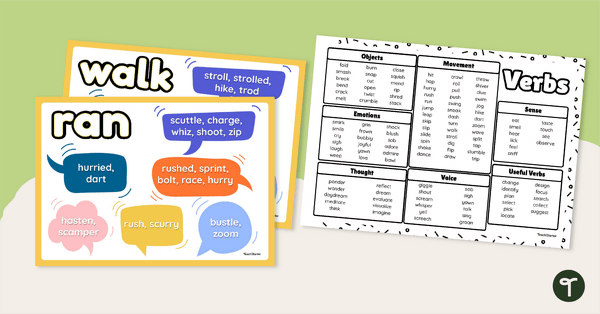
Better Verb Choice Words Pack
Help your students during their writing with this set of visually appealing verb posters and verb word mat.
- Plus Plan
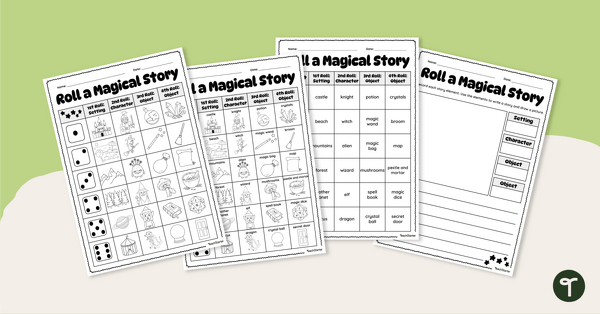
Roll to Create a Magical Story – Dice Game
Get your students writing magical stories during Book Week 2024 with this engaging and interactive “Roll to Create” dice game.
- Free Plan
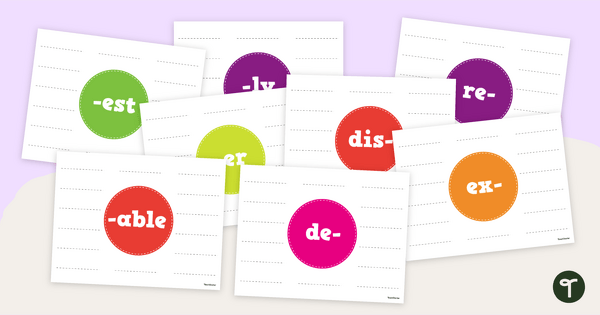
Prefix and Suffix Gallery Walk Activity
Get your students up and learning about prefixes and suffixes with an engaging gallery walk activity.
- Plus Plan
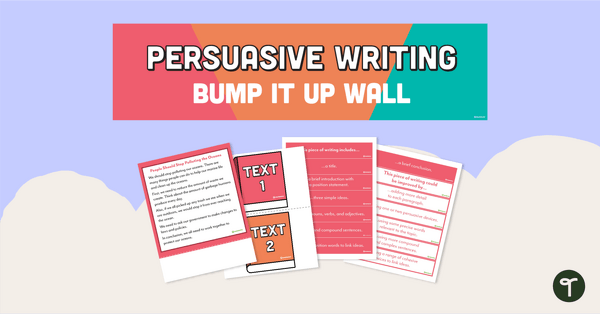
Persuasive Writing Bump It Up Wall – Year 6
A visual display for your classroom to help students ‘bump up’ their persuasive writing.
- Plus Plan
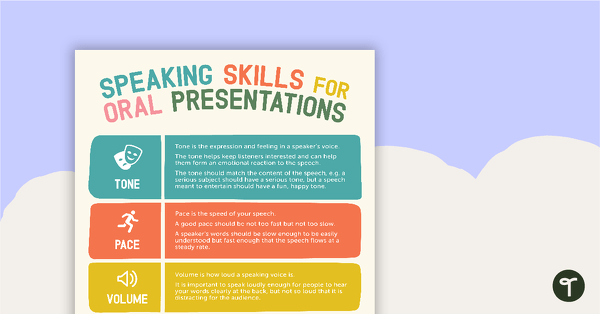
Speaking Skills for Oral Presentations Poster
A poster that explains the skills students need for a great oral presentation!
- Free Plan
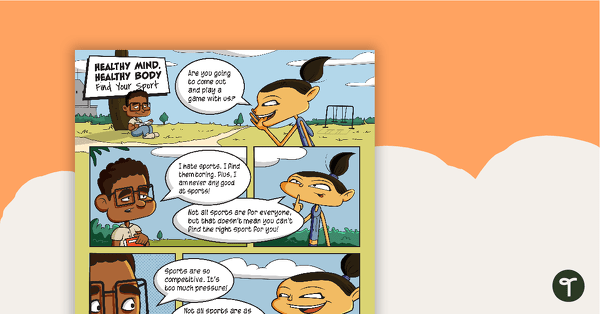
Healthy Body, Healthy Mind: Find Your Sport – Comprehension Worksheet
A comprehension worksheet for a comic about the importance of physical activity to a healthy lifestyle.
- Plus Plan
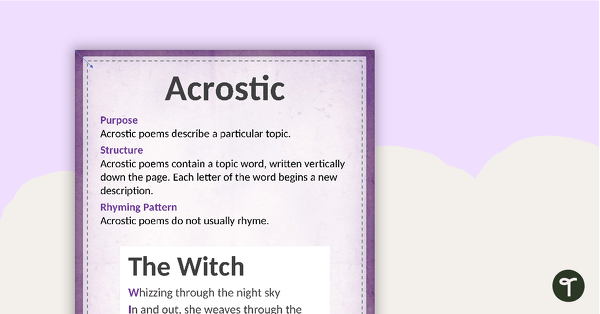
Types of Poetry Posters with Annotations
Use this set of 9 annotated posters when introducing structured forms of poetry to your students.
- Plus Plan
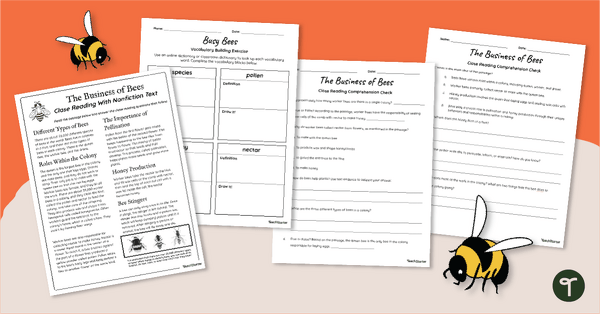
Year 5 Reading Worksheets - The Business of Bees
Read and learn about bees, pollination and honey production with a reading comprehension passage and worksheet pack.
- Free Plan
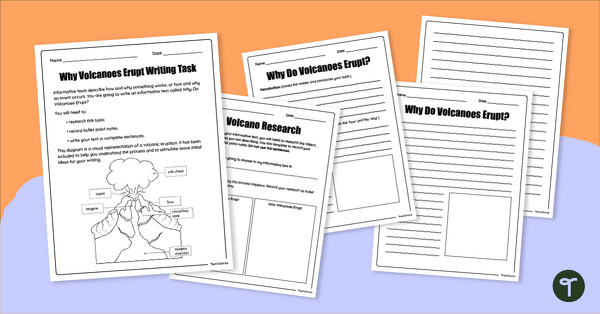
Informative Text Writing Task – Why Do Volcanoes Erupt?
Research and write about how volcanoes erupt with a scaffolded informational writing task.
- Plus Plan
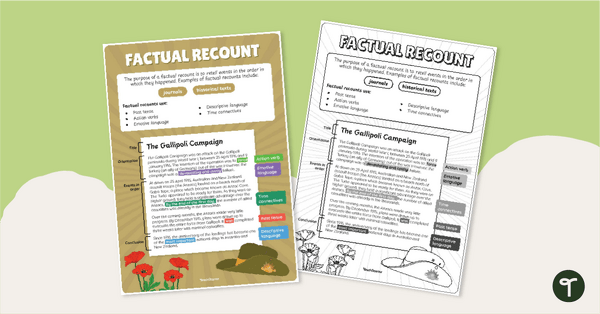
Factual Recount Text Type Poster With Annotations
Display this Factual Recount text with annotations to help students identify the structure of this type of text.
- Plus Plan
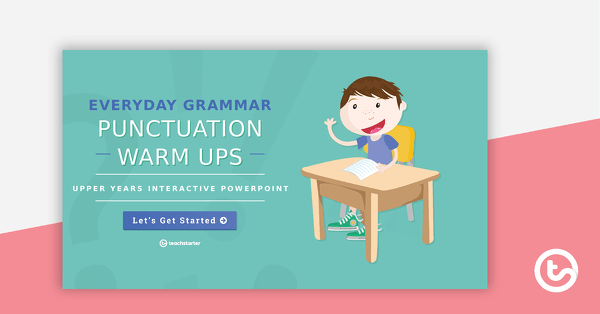
Everyday Grammar Punctuation Warm Ups - Upper Years Interactive PowerPoint
An engaging 44 slide interactive PowerPoint to use in the upper years classroom when learning about grammar and punctuation.
- Plus Plan
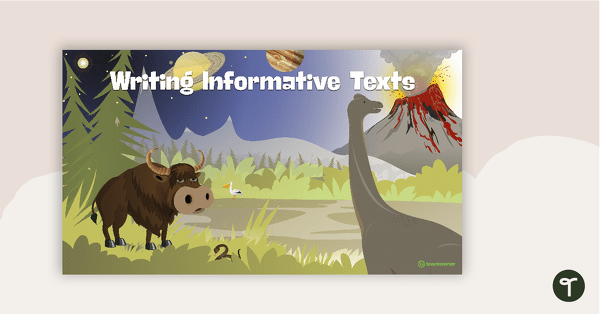
Writing Information Reports Teaching Slides
Teach your students the features of information reports using this detailed slideshow targeted at upper primary school students.
- Plus Plan
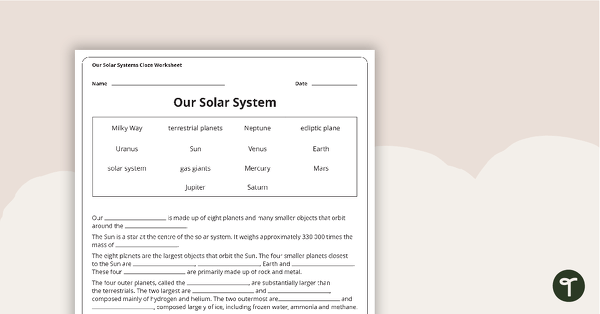
Fiction and Non-Fiction Cloze Activities
A set of 7 fiction and non-fiction cloze worksheets with answer sheets.
- Plus Plan
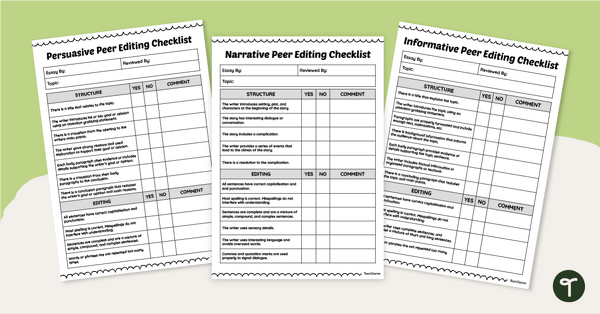
Peer Editing Checklist Pack
Encourage thorough peer reviews by providing your students with printable peer review checklists for informative, persuasive, and narrative writing.
- Plus Plan
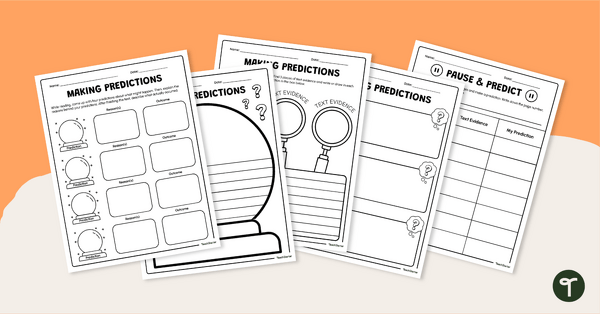
Making Predictions Graphic Organiser Pack
Enhance reading comprehension by using these Making Predictions Graphic Organiser templates in your classroom.
- Plus Plan
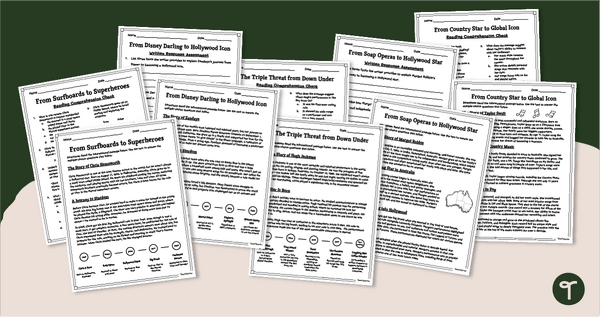
Read & Comprehend Worksheets - Celebrity Biography Passages
Download our celebrity biography reading comprehension worksheets to help your Year 4 and 5 students practise reading comprehension skills.
- Plus Plan
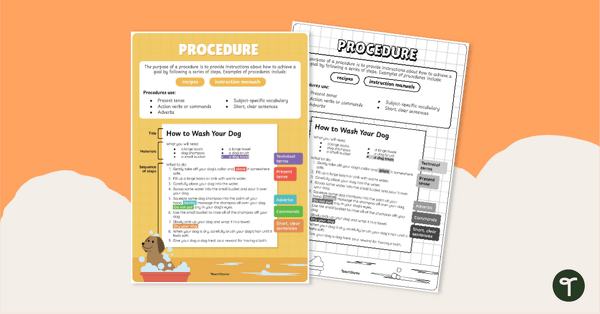
Procedure Text Type Poster With Annotations
Display this procedure text with annotations to help students identify the structure of a procedure.
- Free Plan
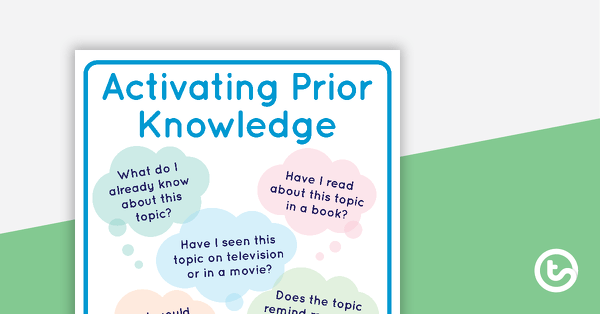
Activating Prior Knowledge - Comprehension Strategy Poster
A poster explaining how to activate prior knowledge before reading.
- Plus Plan
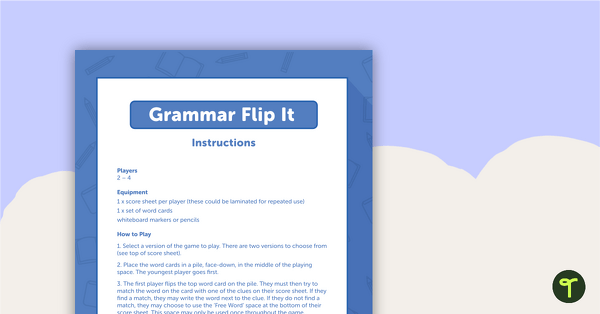
Verb Grammar Card Game – Flip It!
A fun game for students to play in small groups to consolidate their understanding of verbs.
- Plus Plan
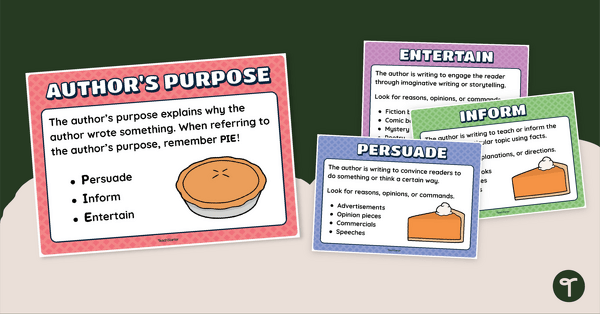
Author's Purpose Pie Poster Set
Display this set of Author’s Purpose Pie posters to help students remember the various reasons authors write.
- Plus Plan
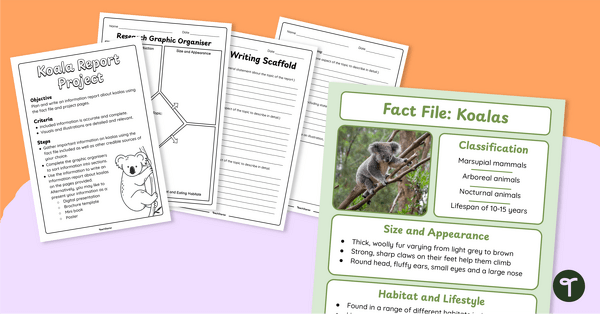
Koala Information Report – Writing Project
Get your students writing a koala information report using this age-appropriate fact file and writing scaffold.
- Plus Plan
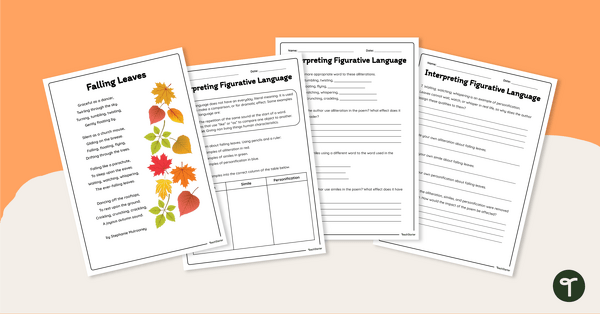
Interpreting Figurative Language - Worksheets
Explore figurative language in poetry with this age-appropriate poem and accompanying vocabulary questions.
- Plus Plan
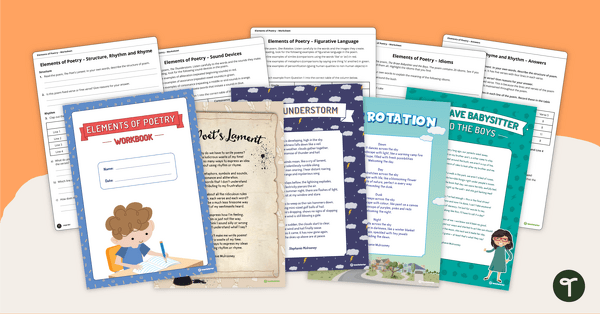
Elements of Poetry Workbook
Explore the wonders of poetry with this set of poems and accompanying worksheets designed specifically for children.
- Plus Plan

Elements of Poetry Teaching Slides
Explore the key elements of poetry with your students using this comprehensive and age-appropriate slide deck perfect for your poetry writing unit.
- Plus Plan
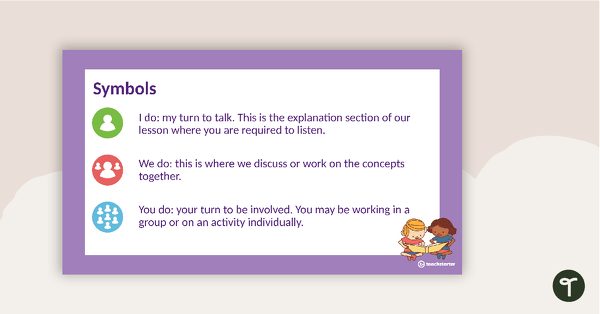
Reading Comprehension Strategies PowerPoint - Visualising
A 12 slide editable PowerPoint template explaining the reading comprehension strategy of visualising.
- Plus Plan
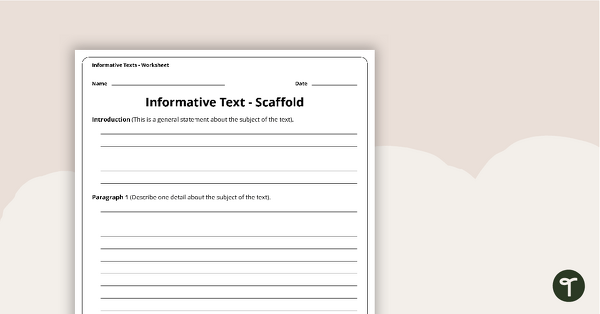
Information Report Writing Template
Use this information report template to help your students correctly structure their informative writing.
- Plus Plan
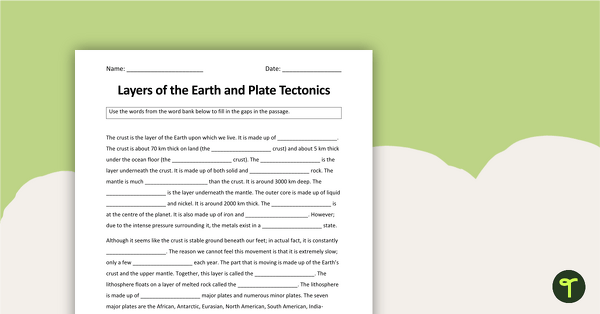
Plate Tectonics Cloze Activity
A cloze activity to use when learning about the layers of the Earth and plate tectonics.
- Plus Plan
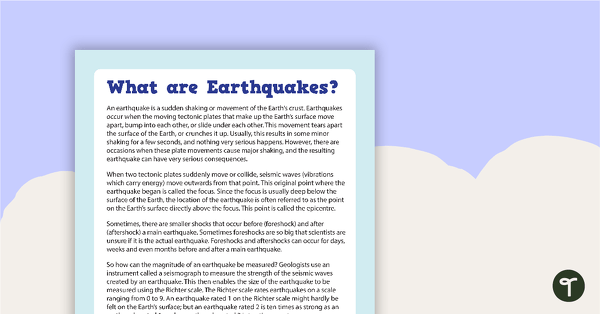
Comprehension - What are Earthquakes?
A comprehension activity about 'What are Earthquakes?'
- Plus Plan
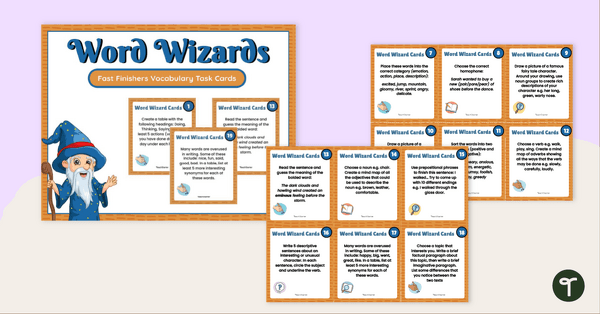
Fast Finisher Vocabulary Task Cards - Upper Years
Boost student vocabulary skills with rigorous, engaging Vocabulary Task Cards for Fast Finishers.
- Plus Plan
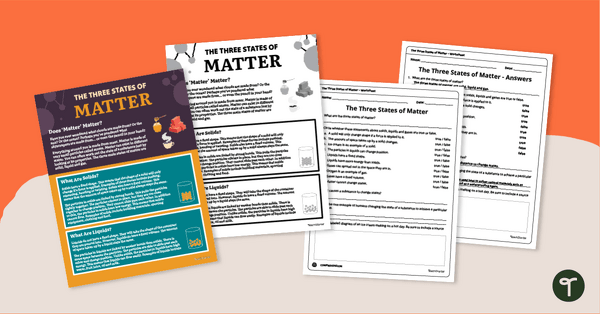
The Three States of Matter – Year 5 Reading Worksheets
Use a Year 5 Reading Comprehension passage and worksheet to teach your students about the three states of matter.
- Plus Plan
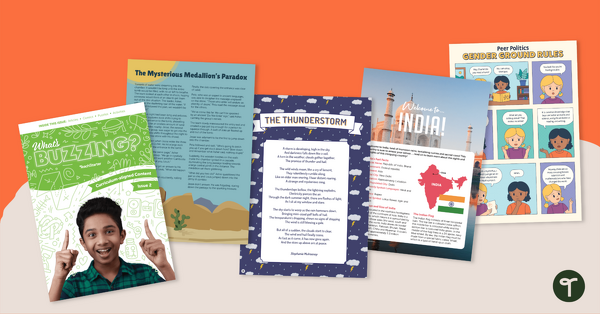
Year 6 Magazine - What's Buzzing? (Issue 2)
Issue 2 of our beautifully designed, 24-page reading magazine specifically designed for Year 6 students.
- Plus Plan
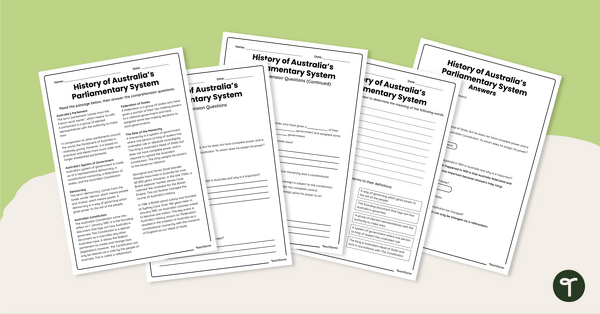
The History of Australia's Parliamentary System - Comprehension Worksheets
Explore the ins and outs of Australia’s parliamentary history with this reading comprehension activity.